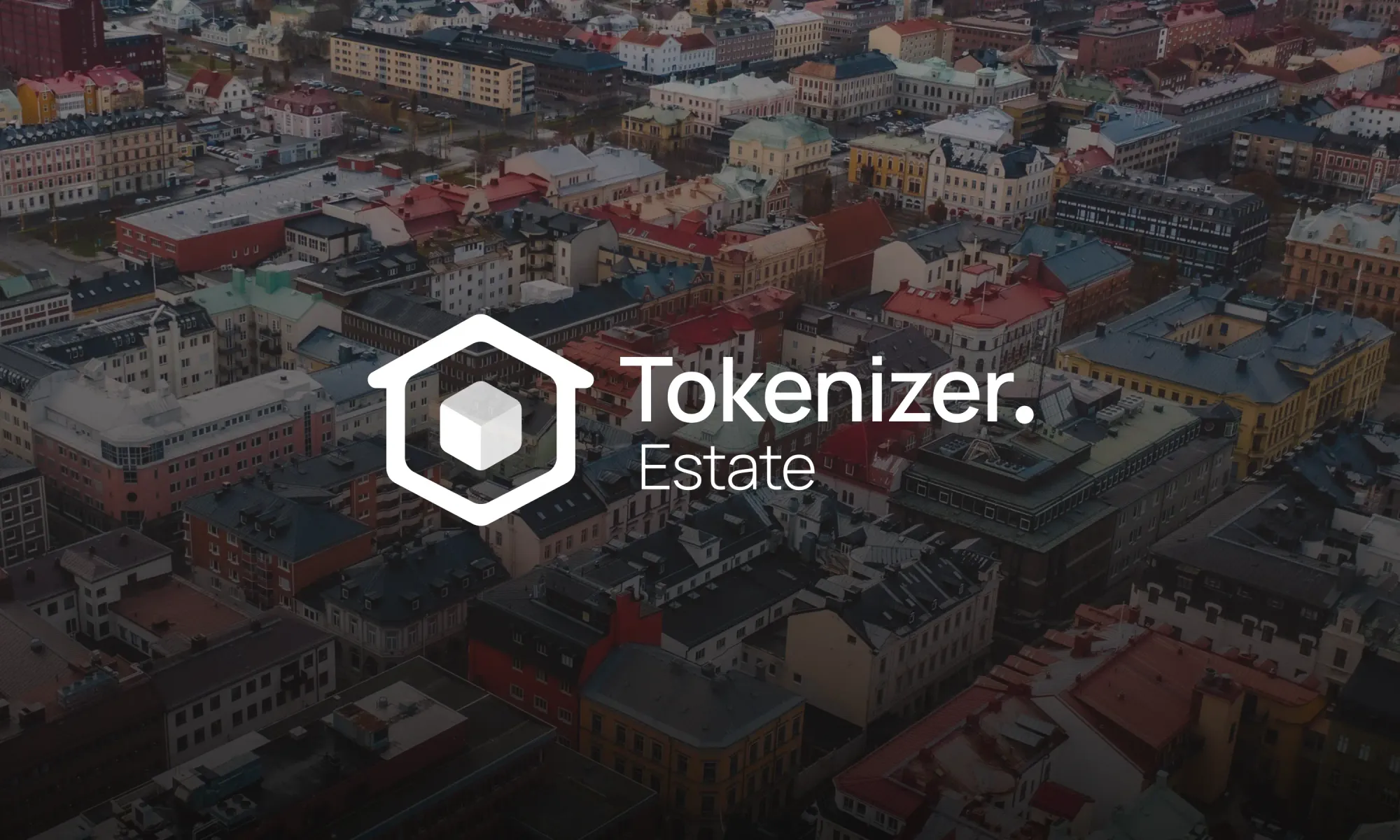Tokenization in Sweden: Balancing Innovation and Tradition in Real Estate
Sweden is exploring real estate tokenization with cautious innovation. Discover how a tech-savvy nation is testing blockchain to open property investment to more people.

Sweden is often celebrated as a land of innovation and digital forward-thinking. This is a country where cash is disappearing from daily life, startups thrive in Stockholm’s tech scene, and even the central bank has piloted a digital currency. Indeed, Sweden’s central bank (Riksbank) spent two years testing an “e-krona” digital currency – though as of 2025 the government remains cautious about fully adopting it. In the realm of real estate, however, Sweden’s embrace of blockchain and tokenization has been more measured, reflecting a blend of enthusiasm for new technology and respect for long-standing systems. The result is a quiet but growing exploration of real-estate tokenization in Sweden – a story of pilots, potential, and pragmatic caution.
A Tech-Savvy Nation with Real Estate Traditions
Sweden’s reputation as a tech leader creates high expectations for innovation in property investment. This is the nation that tested blockchain for land titles early on, aiming to streamline property deals with smart contracts. At the same time, Swedish society places great trust in established institutions like the land registry and banks, which have served the property market for decades. Housing transactions in Sweden are famously thorough and stable, if somewhat slow and complex by design. The question arises: can cutting-edge tech like tokenization find a place in such a well-regulated, traditional real estate environment?

One factor driving interest in tokenized real estate is the accessibility challenge of Sweden’s property market. Home ownership in major cities requires substantial capital. For instance, the average home price in Stockholm is around SEK 7 million (≈€640,000) - a hefty sum that puts direct real estate investment out of reach for many young or middle-income Swedes. This has led to high household debt levels, as buyers stretch mortgages; Swedish households carry debt averaging about 151% of their gross income – among the highest ratios in Europe. Many others are shut out of buying altogether, fueling a competitive rental market. These conditions make the idea of fractional ownership through tokenization very appealing: instead of borrowing millions of kronor for one apartment, an investor could buy a small digital share of a property and start building wealth in real estate gradually.
Early Blockchain Experiments in Property Deals
Sweden was one of the first countries to explore blockchain in real estate transactions. Back in 2016, the national land registry agency Lantmäteriet led a pioneering pilot with several tech partners to put property sale processes on a blockchain. The goal was to reduce paperwork delays, minimize manual errors, and create a secure, transparent system for transferring property titles. A consultant involved noted that the pilot’s transparency and efficiency could position Sweden as a leader in applying this nascent technology. In practice, the project successfully demonstrated a house sale using smart contracts and even integrated BankID (Sweden’s e-ID) to verify parties – but it remained a proof-of-concept rather than an adopted system. In other words, blockchain proved it could work, but turning it into everyday infrastructure would require changes in laws, processes, and mindset that were not immediate. The land registry pilot highlighted both Sweden’s openness to experiment and its cautious approach: authorities were willing to test radical ideas, yet any permanent shift would have to align with Sweden’s robust legal frameworks and trusted institutions.

First Steps Toward Tokenizing Property
Alongside government-backed pilots, Swedish entrepreneurs have also tried to bring tokenization to real estate. One notable early player was a startup called Tokenine. In 2019, Tokenine announced plans to tokenize a property worth about SEK 200 million (≈$21 million) by dividing it into digital tokens. The idea was to let people invest as little as $10 to buy a fraction of the property’s value and earn rental income from it. Essentially, investors would hold security tokens representing shares in a company that owned the building, and rental yields would be distributed to token holders – a model designed to open real estate investment to almost anyone. “When have you been able to do that before?” the startup’s founder quipped, emphasizing that even small investors could join in and potentially see returns “from a few percent to almost double-digit percentages”, making it “a perfect alternative to having money in a bank account”.

This bold vision showed how tokenization might democratize Swedish real estate. However, turning it into reality proved complex. As Tokenine discovered, the technology was easier than the legalities. By 2019 they had the blockchain platform ready, but regulatory questions were unresolved worldwide. In Sweden, it wasn’t entirely clear how to proceed within existing law, so the company entered a dialogue with the Swedish Financial Supervisory Authority (Finansinspektionen) to ensure compliance.
The founder explained that any sale of tokens to the public in Europe essentially required being (or partnering with) a licensed securities firm, since these tokens would be treated as securities under financial rules. In other words, even though the tokens represented slices of property, Swedish regulators viewed them through the lens of traditional investment laws (“same activity, same risk”). This cautious regulatory stance meant that innovative projects had to wrap tokenization in familiar legal structures – like using an established company to issue shares – to stay within the rules.
Regulation: Caution, Compliance and New Clarity
Sweden’s careful approach is in line with the broader European view on tokenized real estate. Across the EU, regulators have made it plain that property tokens are usually treated as securities, with all the compliance that implies. Sweden, as an EU member, follows this principle. There is no special “crypto real estate” law in Sweden; instead, existing laws on securities, funds, and property sales apply. This has a silver lining: it provides a clear framework (you must follow established investor protection rules), which helps avoid legal grey areas.
But it also means tokenization startups face high compliance hurdles – they need the right licenses, KYC/AML checks, and possibly prospectuses if offering tokens to the public. In a highly regulated and risk-averse market like Sweden, this can slow down the pace of innovation. Financial institutions and regulators prioritize stability and consumer protection, so any new tokenization venture is scrutinized just as a new stock offering would be.

That said, the regulatory climate is slowly evolving in favor of tokenization. The European Union’s new MiCA (Markets in Crypto-Assets) regulation came into effect in 2024, bringing crypto-assets under a unified framework. MiCA explicitly excludes tokenized securities (since those fall under traditional laws), but it sets out rules for other tokens and exchanges which indirectly benefits the whole ecosystem. In Sweden, Finansinspektionen has begun implementing these EU rules. Companies dealing in crypto assets must register with the FSA, and those already operating before the new law have until late 2025 to get official approval. This means by now there is a clearer path for tokenization platforms to become fully compliant service providers, rather than operate in a legal vacuum. The need to apply for FSA authorization pushes serious players to meet high standards – potentially increasing trust among investors and institutions.

It’s worth noting that Sweden’s legal system does have some features that quietly support tokenization. For example, Swedish companies are allowed to keep digital share ledgers, and electronic signatures on contracts are legally recognized. These existing provisions make it easier to structure a tokenized real estate deal through a Swedish company (SPV) and manage investors electronically. In essence, while Sweden hasn’t rushed to proclaim itself a blockchain haven, it also hasn’t erected any arbitrary roadblocks – the door is open, but you must enter on traditional terms of transparency and accountability.
Learning from Global and Local Examples
As Sweden deliberates, other countries’ experiences provide inspiration and lessons. Across Europe and beyond, real estate tokenization is gaining momentum – often with support from regulators. Dubai’s government, for instance, launched a pilot to tokenize property and created a clear licensing scheme for fractional real estate sales. The United States has seen multiple tokenized property offerings, all handled under its existing securities exemptions. Within the EU, some neighbors have been proactive: Germany’s financial authority clarified that tokenized shares or bonds are valid securities, allowing issuers to “passport” offerings across EU countries. France offers optional visas for token offerings, and several EU nations run regulatory sandboxes for blockchain projects. This international context suggests that Sweden is not alone in figuring out tokenization. The general trend is moving toward acceptance, once legal requirements are met.

Even among smaller markets, there are success stories. In Romania, for example, blockchain platforms are already enabling fractional property investments, allowing global investors to buy small shares of local real estate and thus opening the market to a wider audience. Portugal has combined blockchain innovation with an open legal framework, so that tokenized property – from tiny eco-homes to luxury resorts – can be offered under clear rules, reshaping how people invest in Portuguese real estate. These cases show that when the regulatory pieces fall into place, tokenization can flourish and bring real estate to new groups of investors.
Sweden, known for its orderly and well-run markets, is likely watching these developments closely. There is an advantage to being cautious: Swedish regulators and firms can observe what works (or fails) abroad and then apply global best practices at home. Already, we see European collaboration growing – companies are forming partnerships across borders to expand tokenized real estate platforms. For instance, Denmark’s DigiShares and Switzerland’s BrickMark recently joined forces to build distribution channels for tokenized property investments spanning Europe and the US. Such partnerships could easily extend to Sweden when the time is right, plugging Swedish properties into a global network of digital asset markets.
The Road Ahead: Swedish Tokenization on the Horizon
So, where does that leave tokenization in Sweden today? In 2025, it remains early days, but the foundation has been laid. The concept is proven – through pilots like Lantmäteriet’s blockchain trial – and the demand is real, given the high barriers in the traditional property market. Young investors, tech enthusiasts, and even real estate developers in Sweden are increasingly curious about tokenization as they hear of projects abroad. The main hurdles have been regulatory clarity and market trust, and both of these are gradually being addressed. With EU-wide regulations in effect and other countries demonstrating viable models, Sweden’s cautious stance may soon soften. It’s conceivable that within a few years, we’ll see the first Swedish property tokens offered to investors, likely in a tightly controlled, compliant manner – perhaps a pilot project for a fractional share in a Stockholm commercial building or a tokenized fund for rental apartments.

Sweden’s approach will probably continue to balance innovation with its tradition of stability. Any tokenized real estate offerings will emphasize investor protections, transparency, and links to something tangible (for example, tokens tied to shares in a property-owning company, which is a familiar setup). The country’s strong digital infrastructure could actually give it an edge once momentum picks up – imagine leveraging Sweden’s ubiquitous BankID for instant verification of token investors, or using its efficient land registry data to speed up due diligence for tokenized deals. The pieces are there, waiting to be connected.
Crucially, Swedish players won’t have to go it alone. As tokenization becomes mainstream, a range of specialized platforms and experts are available to help structure projects correctly. (This includes platforms like Tokenizer.Estate, which can assist with the technical and compliance aspects of bringing real estate on-chain in a secure way.) With the right guidance, Swedish property firms and investors can navigate the tokenization journey smoothly – from setting up the legal entity and smart contracts to managing token holder rights and secondary trading.

In conclusion, tokenization in Sweden is an evolving story of a high-tech society meeting a highly-regulated market. The narrative so far has been cautious but steadily progressive: early experiments proved the concept, regulators gradually provided a roadmap, and interest continues to build as global examples roll in. Sweden might not have been the first out of the gate in tokenizing real estate, but its deliberate pace may well pay off. By learning from others and insisting on doing things properly, Sweden stands to eventually embrace real estate tokenization in a way that fits its character – innovative, inclusive, and built on solid ground. When that happens, Swedish investors of all sizes could find themselves with new opportunities to participate in property markets, and the nation’s reputation for fintech leadership will extend into the realm of blockchain-powered real estate. The groundwork is set; now it’s a matter of time before this Scandinavian giant takes its next steps into the tokenized future.

